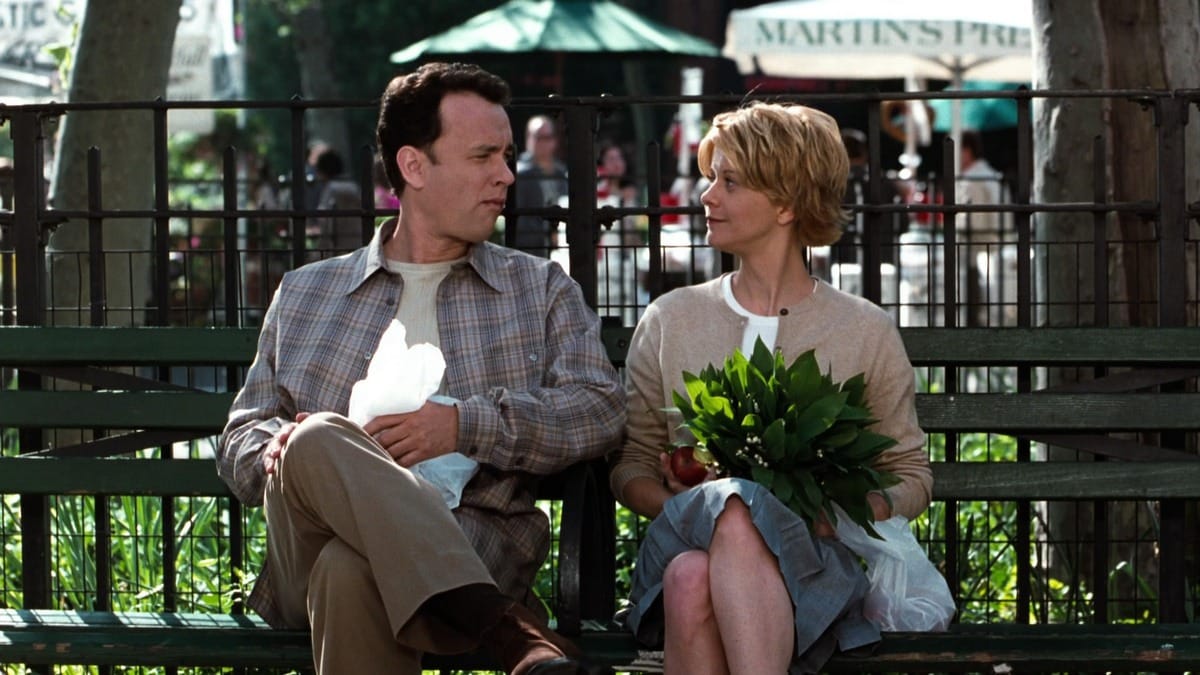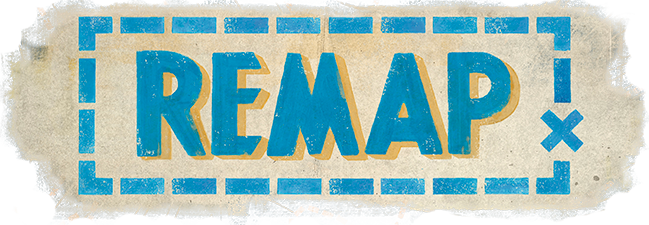It's easy to take the modern conveniences the internet provides us for granted now, and it's even easier to take the sheer existence of the internet for granted, too. Slowly, and then quickly, it was a fundamental shift that altered everything around it, to the point that it's difficult to imagine life before the internet existed.
Rob and Patrick were around before the internet was a thing for the masses, and experiencing the early interests aches, pains, and bliss was part of growing up.
Today's internet is one of convenience. The old internet required work on your part. Would it shock you to learn that maybe, as we've gotten older, we're looking back at that era with fondness, perhaps even arguing it was better back then?
Let's not spend too much time unpacking that one. Just accept it as truth.
Patrick: Do you remember the first time you used the internet? For me, it’s a hazy mishmash concentrated around a growing pile of America Online discs showing up in the mail. I think we tried Compuserve once, but only because AOL was often too busy to access—yes, you would straight up get a “busy signal” when you were trying to get on the internet!!—and they were offering a free trial. I truly can’t remember if AOL was popular because it was good or good because it was popular, but regardless, AOL was the path into the life and career I have now.
It was the dial-up era, a time when you shared access to the internet with your phone line, which meant that if someone in the house picked up the phone while you were surfin’ the web, it’d disconnect. Was I supposed to be on the internet at the time my mom picked up? Debatable.
At one point, my family got so fed up with fighting over the internet that we purchased a second line explicitly dedicated to dial-up. By “my family,” of course, I mostly mean me wanting to use it.
I have fond memories of sneaking downstairs when the entire family was asleep and draping the family computer with big, thick blankets to dampen the excruciating noise the machine would make while dialing into AOL. It would be decades before I realized it was possible to turn this noise off! Doing so might have spared me from being yelled at a few times, but with the time, it’s such a funny story, and that weird noisescape is a nostalgic part of my earlier years.
The funny part of the early internet is how curated it was. When you logged into America Online, what you were treated to was, in essence, a magazine? There were different pages you could jump to with information, chat rooms, and discussion boards about topics like the news, games, movies, etc. And who can forget, of a/s/l, a term that will have great meaning to a specific age group who thought they were trying to talk to girls, when it was probably a child lying to you.
AOL is where I debated the death of Aeris—sorry, Aerith—for the first time. It’s where I pirated my first game, and learned the hard way that downloading 99% of a file is not the same as downloading 100% of a file. It’s where I found my first online communities and virtual friends.
It was possible to open a web browser in AOL, but I can’t remember doing it very often. And honestly, I cannot pinpoint exactly when I shifted from AOL’s siloed nature to the native internet, but it was around the time Netscape Navigator became a thing. If I had to guess, my obsession with video games eventually led me offsite, in the same way that my obsession with video games also led me to the world of IRC (Internet Relay Chat), an early chat protocol that’s directly responsible for a shocking amount of early video game criticism. mIRC for life, bitches.
What do you remember about your earliest days on the internet, Rob?

Rob: Well I definitely remember AOL and in particular its huge co-marketing campaign for You’ve Got Mail, the Meg Ryan-Tom Hanks remake of Shop Around the Corner that is maybe the single most late 1990s movie ever made. The conceit of the original movie is that two co-workers who cannot stand each other are also secretly one another’s pen pals, falling increasingly in love via letters even as they grow more estranged at work. You’ve Got Mail liberally reinvents the premise to make Ryan the owner of a beloved children’s bookstore and Hanks is the embodiment of Borders / Barnes and Noble. I’ve got a huge soft spot for the film: I don’t think it’s Nora Ephron’s best work, but I think it’s a fascinating document and meditation on a moment in American life where everyone knows profound changes are coming but nobody knows what they will signify, and for the moment life still feels not so very different than it always has before.
The movie is really ambivalent. About everything: its leading couple and their romance, the vanishing New York that’s already started surrendering to national chains and trendy convenience, our morality… but most of all it is ambivalent about the internet. The film takes its title from the little “You’ve got mail!” voice clip that would crackle from your speakers whenever you logged into AOL and there was an unread email waiting, and throughout the movie we see the way our two Boomer protagonists have already been reconditioned by this new technology to obsess over it and the opportunities it affords to pretend to be someone else. A more authentic version of themselves? The movie isn’t so sure. (Olivia Rutigliano has written my favorite essay on the film, arguing that the movie’s uncomfortable contradictions or discordances are the real point Ephron is trying to make.)
AOL, however, went buck-wild when this thing was coming out. They would send to customers tons of promotional stuff, to the point where it seemed like AOL was treating You’ve Got Mail like an engagement announcement between it and the whole world. The week before the movie came out I got a half-dozen messages reminding me it wasn’t too late to order a You’ve Got Mail bouquet for that special someone. But of course, in some of the same ways that Hanks’ character in the film now reads as a guy who is also about to be wiped out of business by the likes of Amazon rather than as the vanguard of capitalism, AOL was about to start declining. The silo is built around its users made too many other things difficult (I never managed to get connected to a game server via AOL), and once people got comfortable with the likes of Netscape and Outlook, a lot of the hand-holding AOL offered was going to be irrelevant. AOL was convinced this odd little romcom was a testament to how it had conquered American culture, but it turned out to mark the mass-adoption pivot-point that would devastate the entire business model.
When I was very young and didn’t remotely realize how any of this worked, I wanted to play multiplayer Warcraft 2. We didn’t have an internet connection but we did have a modem and I saw that option in the multiplayer menu for the game so I clicked host game and waited for my opponent to show up. And I waited. And then I went to do my chores, checking in on the game periodically to see if anyone had connected. I was perplexed: I knew the game was popular, why wasn’t anyone trying to find a game and being matched with my modem?
But once I did know how more of this worked, I will say that direct modem connection games were how I did most of my online gaming. A bunch of my friends and I all had each other’s phone numbers, so we’d give each other quick phone calls to confirm everything was set up, and then we’d connect for hours of StarCraft, Total Annihilation, and Red Alert. Once I got to college and enjoyed access to a 24/7 high-speed connection, I never looked back, of course. But I am not sure I ever had more fun playing multiplayer than when it was basically my and my friends (or not even friends, really: sometimes just the fact that you were both into Dark Reign was enough to strike up a relationship with someone you otherwise didn’t know) arranging matches after dinner, killing our families’ phone lines for hours every night.

Patrick: I have a distinct memory where we’d bought a new family computer, but the old family computer still worked, and so my brother and I dragged the machines together into a part of the house, established a direct connection between them, and played a few Command & Conquer matches. Neither of us was any good, but it was so unbelievably cool to pull off that magic trick.
You must’ve been part of the Total Entertainment Network, Rob, right?
Library, Zeal or Foundation tier
Subscribe at Library, Zeal or Foundation tier(s) or above to access "The Old Internet Was Better". You'll also get access to the full back catalog of that tier's content.
Sign up now Already have an account? Sign in